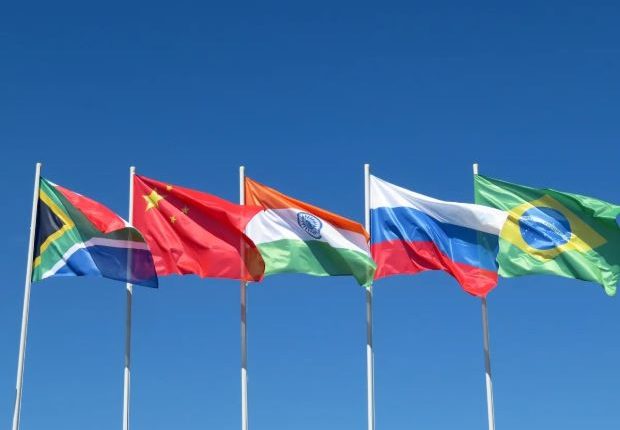COLOMBO – Sri Lanka’s application to become a member in the BRICS has been rejected by the group’s current membership, but its request to become a member of BRICS’ New Development Bank (NDB) has been accepted, cabinet spokesman, Minister Vijitha Herath said.
Established in 2015 by BRICS (Brazil, Russia, India, China, and South Africa), the NDB is a multilateral development bank aimed at mobilizing resources for infrastructure and sustainable development projects in BRICS and other emerging markets and developing countries (EMDCs).
Sri Lanka applied for membership in BRICS when its delegation led by Foreign Secretary Aruni Wijewardena took part in the BRICS summit held in Russia in October.
BRICS, an economic and political group has been gaining increasing relevance in recent years.
It poses several potential challenges to the global dominance of the United States and the central role of the US dollar in international trade and finance.
“There are nine countries which are holding membership in BRICS. Sri Lanka applied for membership at the BRICS summit. But the nine member countries have decided not to entertain any new membership this time,” Herath told reporters at the weekly post-Cabinet media briefing held in Colombo on Wednesday (6).
“We applied for membership only close to the October summit. We also spoke to foreign ministers of many countries to back us. Those countries also backed us. But when the summit decided not to expand membership, we won’t get that opportunity,” he said.
“But we applied to get the membership of the NDB Bank which comes under BRICS. We have got an opportunity to implement that. It should be decided by the Sri Lankan government. We will be deciding at the Cabinet in the future,” Herath said, adding that the approval has been sent to the finance ministry and a decision will be taken based on the finance ministry assessment.
Herath noted there were several countries including Bangladesh, who though not members of BRICS are members of the NDB Bank.
One of the primary goals of BRICS has been to reduce their dependence on the US dollar in international trade. Member nations have been exploring the use of local currencies in trade settlements, reducing exposure to dollar volatility and US-imposed sanctions.
The BRICS nations established the NDB to offer an alternative source of funding for infrastructure and development projects, which were traditionally dominated by Western-led institutions like the International Monetary Fund (IMF) and the World Bank.
By providing such alternatives, BRICS countries challenge the influence of the US and the West in global finance
-economynext.com



Comments are closed, but trackbacks and pingbacks are open.